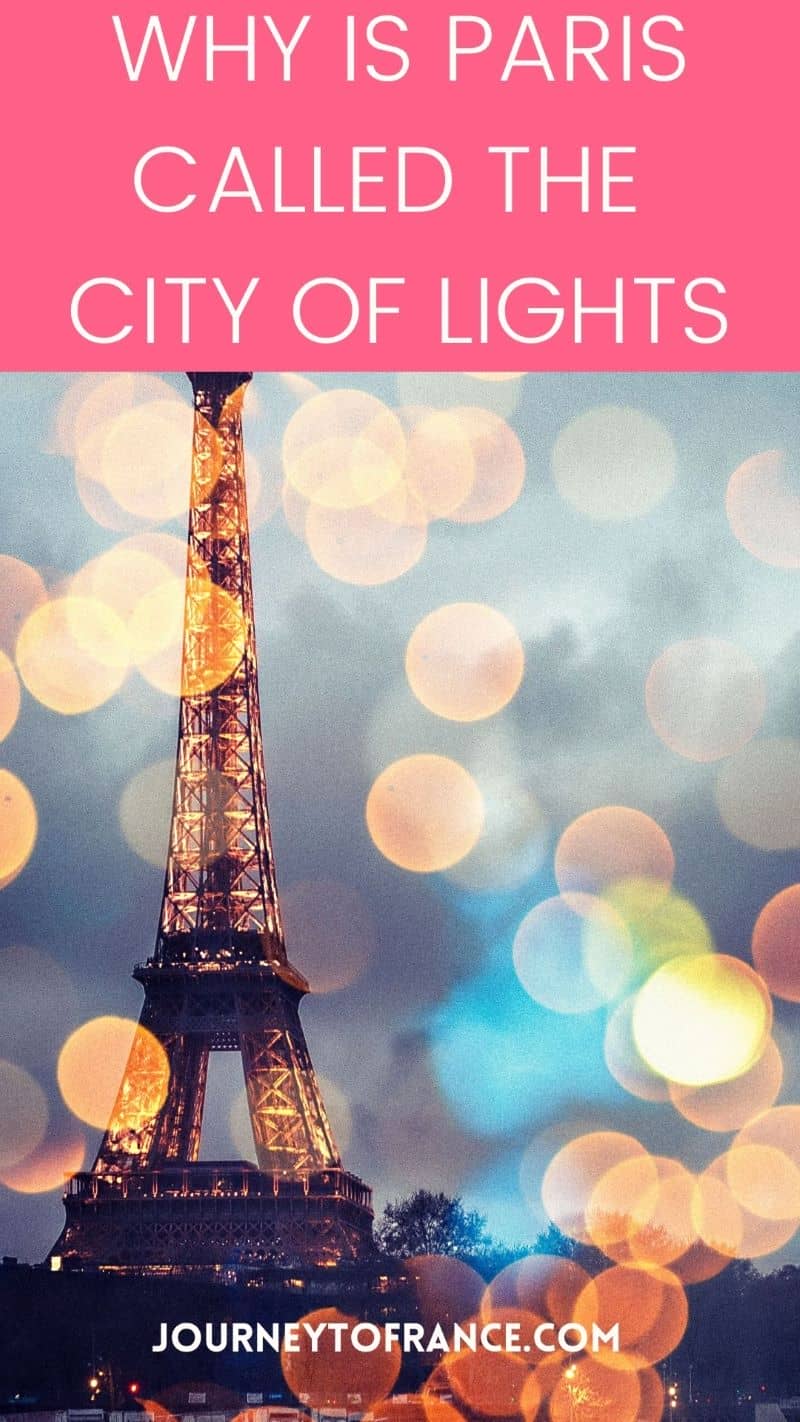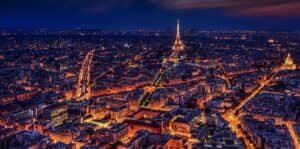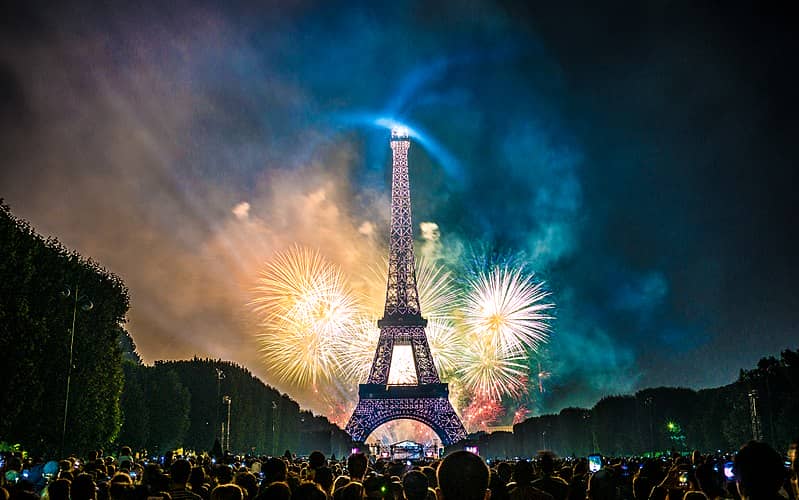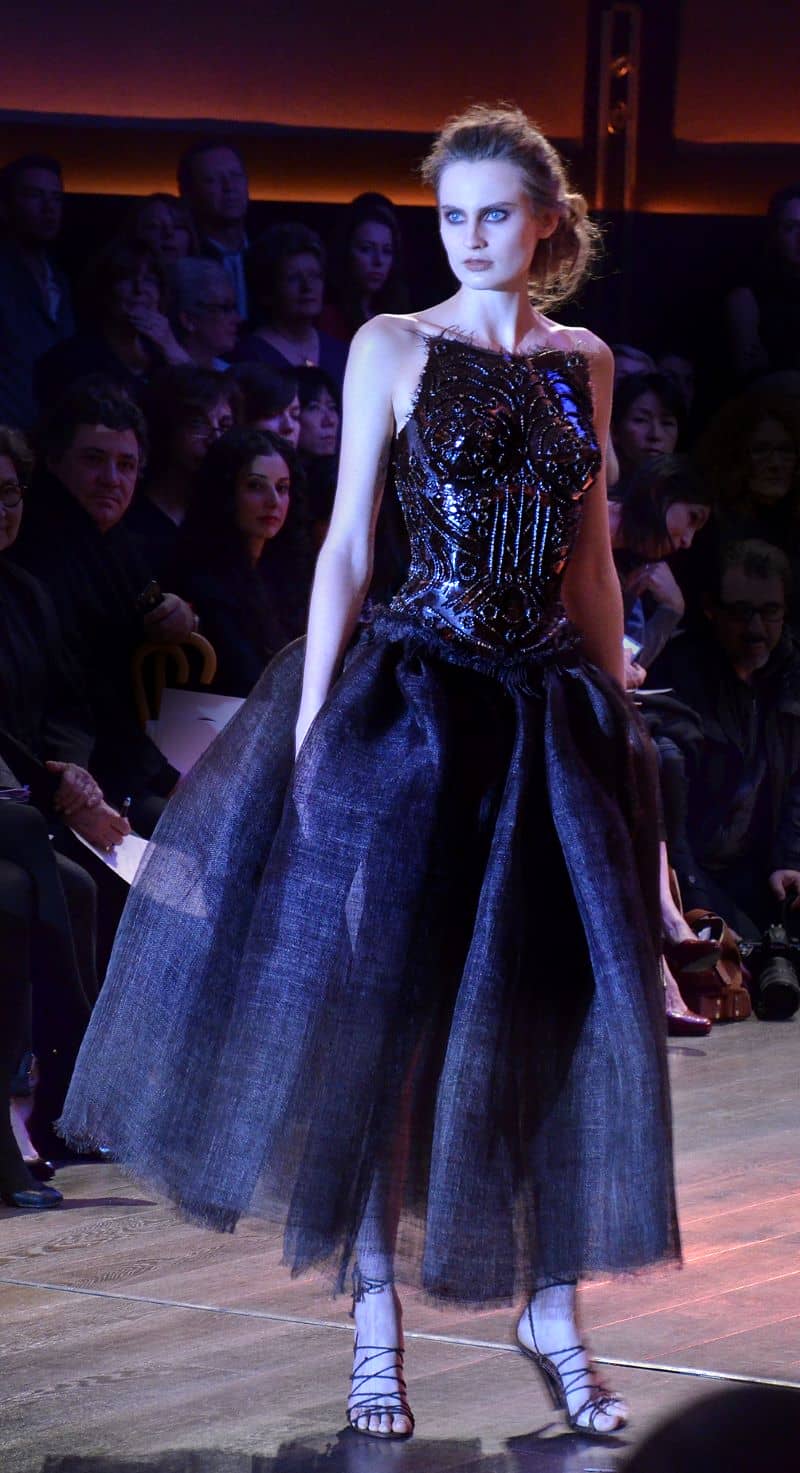Ever wonder why is Paris called the city of lights?
Paris is one of the few big cities in the world with as many nicknames as it does. From “Paname”, to “Lutèce”, to “Pantruche”, to “the City of Love” to “the City of Lights”.
The most common and contentious nickname is “the City of Lights” because few people are aware of the origins of the French capital’s name.
RELATED READ: Is Paris Expensive? What You Need To Know (2023)
Is it because of the Eiffel Tower and the other buildings that light up as the sun sets? Is it because the city is so brilliant that people refer to it as “the city of lights”?
Things you'll find in this article
Why Is Paris Called The City Of Lights

The reason is connected in some way, and it has an interesting backstory. But first, let’s learn a little more about Paris.
The Origin of the name Paris
No, Paris was not named after a character from Homer’s Iliad.
The name was derived from a Celtic tribe known as the Parisii, who lived on the banks of the Seine River during the Iron Age and Roman period, in the 3rd century BC. These lands are now a part of modern-day Paris.
Paris as the Capital of France
Saint-Denis, the first Bishop of Paris, brought Christianity to the city in the 3rd century AD. Clovis I, King of the Franks, conquered the city after the Western Roman Empire fell apart. He was France’s first king, and in 508, he founded Paris as the capital of his empire.
A Few Misconceptions about Paris as the City of Lights

The City of Lights (La Ville Lumièr) is perhaps the most well-known nickname for Paris.
Many people believe the French capital is known as the “City of Light” because of its gleaming bridges and boulevards, churches and hotels, fountains and sculptures, monuments, and national buildings.
When the sun sets, almost everything on Parisian streets is illuminated, with the Eiffel Tower taking the lead.
This, however, is not why Paris is known as the “City of Lights.” The true explanation is very symbolic and dates back hundreds of years.
Why and How Paris Became the City of Lights
The name dates from the mid-1600s when Louis XIV (Louis the Great or the Sun King) wanted to restore the people’s confidence in law and order after a period of domestic strife and war.
The King tasked Lieutenant-General of Police Gabriel Nicolas de la Reynie with making Paris secure once more on March 15, 1667. The city of Paris was one of the first in Europe to implement big street lighting.
A Literal City of Lights

Beyond its historical importance, Paris has truly lived up to its moniker as “the city of lights”.
Over 296 illuminated places can be found in the central district. Every sunset, 33 of the 37 major bridges are illuminated in awe-inspiring splendor.
However, the Eiffel Tower is the city’s true light source. The 40 kilometers of illuminated flower arrangements made up of 20,000 light bulbs are impossible to miss.
And if you’re on a plane about to land at Charles De Gaulle airport, you can see it.
If you want to see the city of lights in all its glory, visit during the festive seasons (Christmas, New Year‘s, Bastille Day), when more than 4 kilometers of lights stretches from the Place de la Condamine to the Place de la République.
Other Nicknames for Paris
With all of its nicknames, Paris could easily be dubbed “the city with many names.” Locals and visitors alike refer to Paris as “the city of lights”, along with other nicknames. These other names for Paris, also have fascinating backstories.
Here are a few more names for Paris, along with some details on why they were given those names.
City of Love
We’ve all seen romantic films set in Paris, such as Funny Face, Before Sunset, and Midnight in Paris. Popular culture has clearly contributed to the French capital’s status as the City of Love over the decades.
Apart from being a famous filming spot, there are several other reasons behind the name:
- Paris is stunning everywhere you look, from the numerous gardens to the intricate architecture and the abundance of culture. Do you want to see some art? Want a dessert that is too pretty to eat? How about the coffee culture in Paris? Fancy a glass of wine and a box of chocolates? There are numerous aspects of Paris that just scream romance.
- The Love Wall in Square Jean Rictus, which contains over 300 declarations of love in various languages.
- The city is also a popular wedding and honeymoon destination.
- At any time of day, but particularly at sunset, when the city slowly lights up, the Eiffel Tower is a romantic place.
- Parisians are romantics in their own right. They may have a snobby reputation, but the reality is that they are romantics at heart.
Read: Why Paris Is Called The City Of Love
Paname
Paname is the French word for Panama, a country in Central America, but that is not how Paris received its nickname.
Panama’s iconic hat became very famous in Paris in the early twentieth century. Since so many people wear that fashionable hat, the city became famous for it. People have called Paris by that name ever since, in honor of the Panama hat.
The City of Haute Couture/ Capital de La Mode (Fashion Capital)

Paris is the birthplace of Haute Couture, which is a high-fashion garment produced entirely by hand.
Leading fashion houses such as Chanel, Dior, Saint Laurent, and Louis Vuitton have their headquarters in the city. Paris is unquestionably the fashion capital of the world, with Haute Couture as its main priority.
The Chambre Syndicale de la Haute Couture (Haute Couture Trade Association) is the body that makes decisions on haute couture standards. This is why fashion designers in Europe and the United States are always watching what is going on in Paris.
La Dame de Fer
The Iron Lady is referred to as La Dame de Fer in French, but we are not about Margaret Thatcher. The Eiffel Tower is called “The Iron Lady.”
The nickname comes from the fact that the Eiffel Tower is made entirely of wrought iron. Since the iconic structure is synonymous with Paris, the nickname is also used to refer to the city itself.
Lutèce
Lutèce is a Roman name for Paris. It came from Lutetia, the name of a city that existed before Paris. Nowadays, Lutèce is a hip nickname for the area. When visiting Paris, look for cafes, stores, and hotels that are still called Lutèce.
Parisii
The name Paris comes from the word Parisii, which refers to a Roman-era tribe that settled on the Middle Seine and Lutetia.
However, it was not until 887 that Paris was given its current name. It was formerly known as Parisios, and even before that, it was known as Parisii.

Hi, I’m Christine – a full-time traveler and career woman. Although I’m from the Philippines, my location independent career took me to over 40 countries and lived in 4 continents in the last 10 years, including France. A self-proclaimed Francophile, I love everything France.
